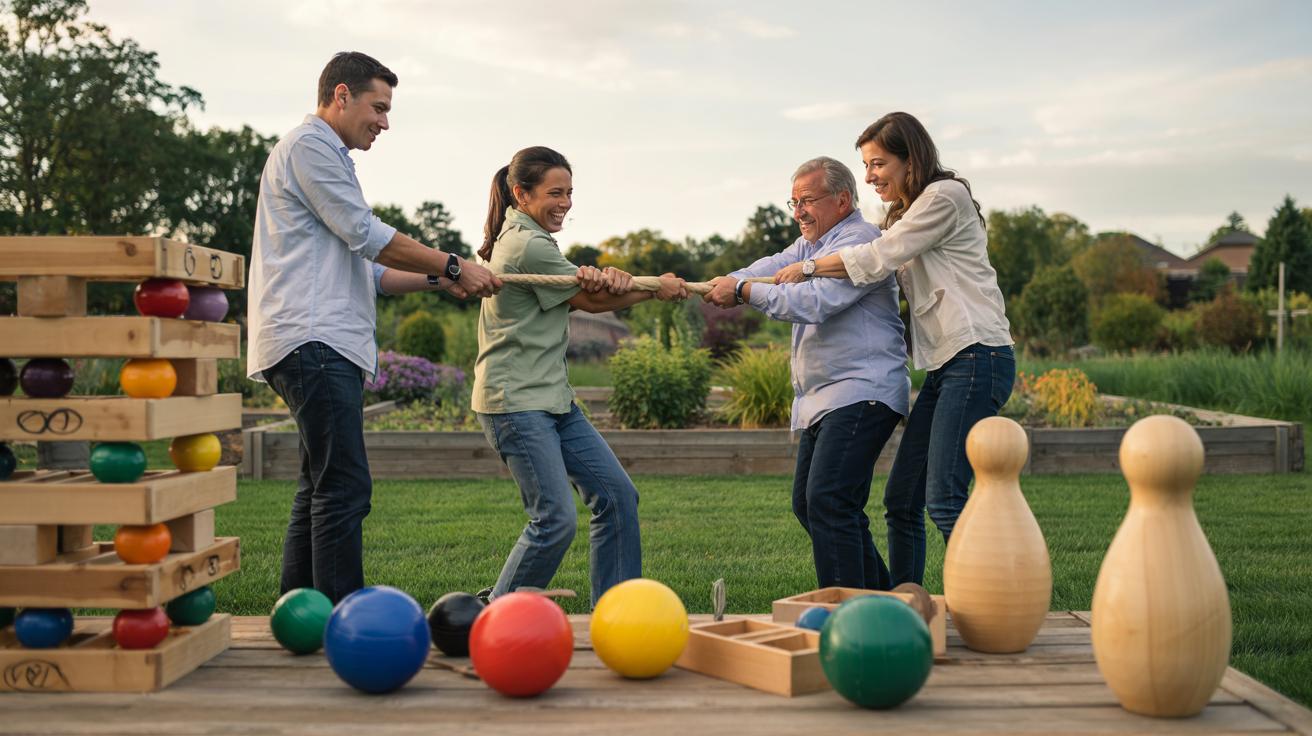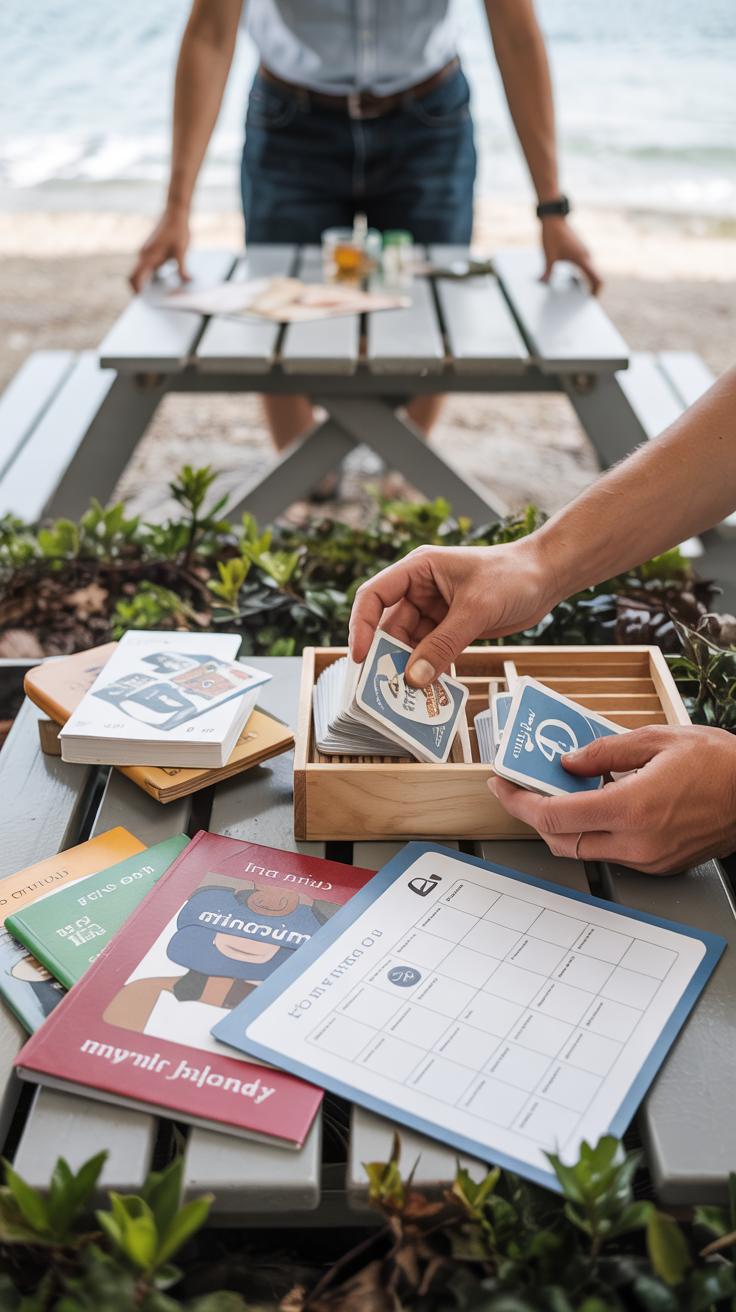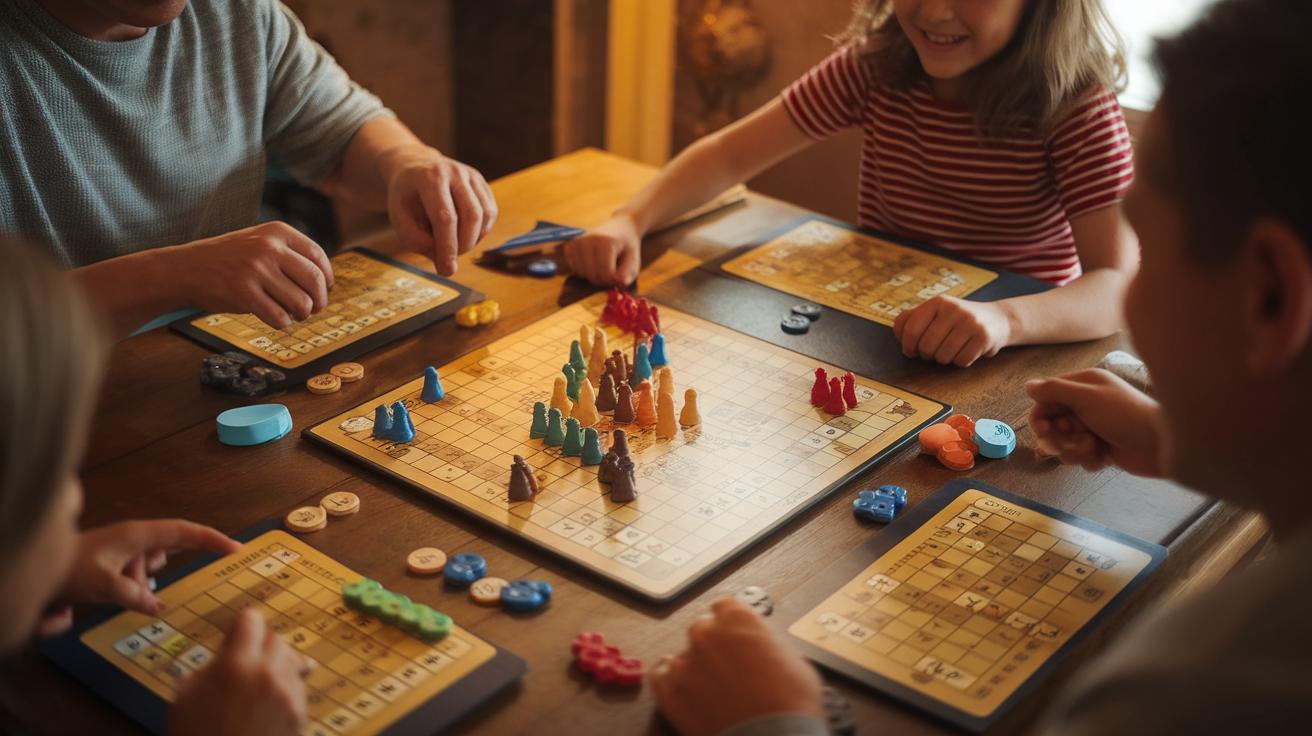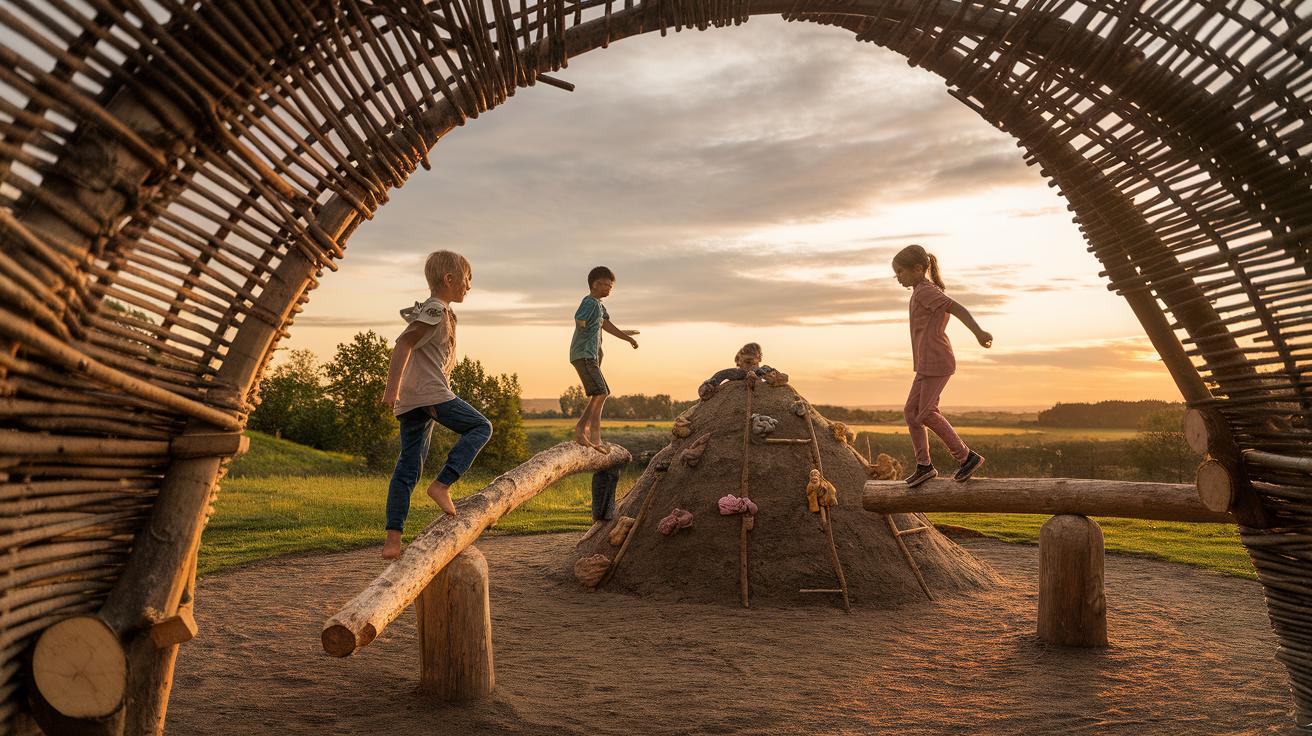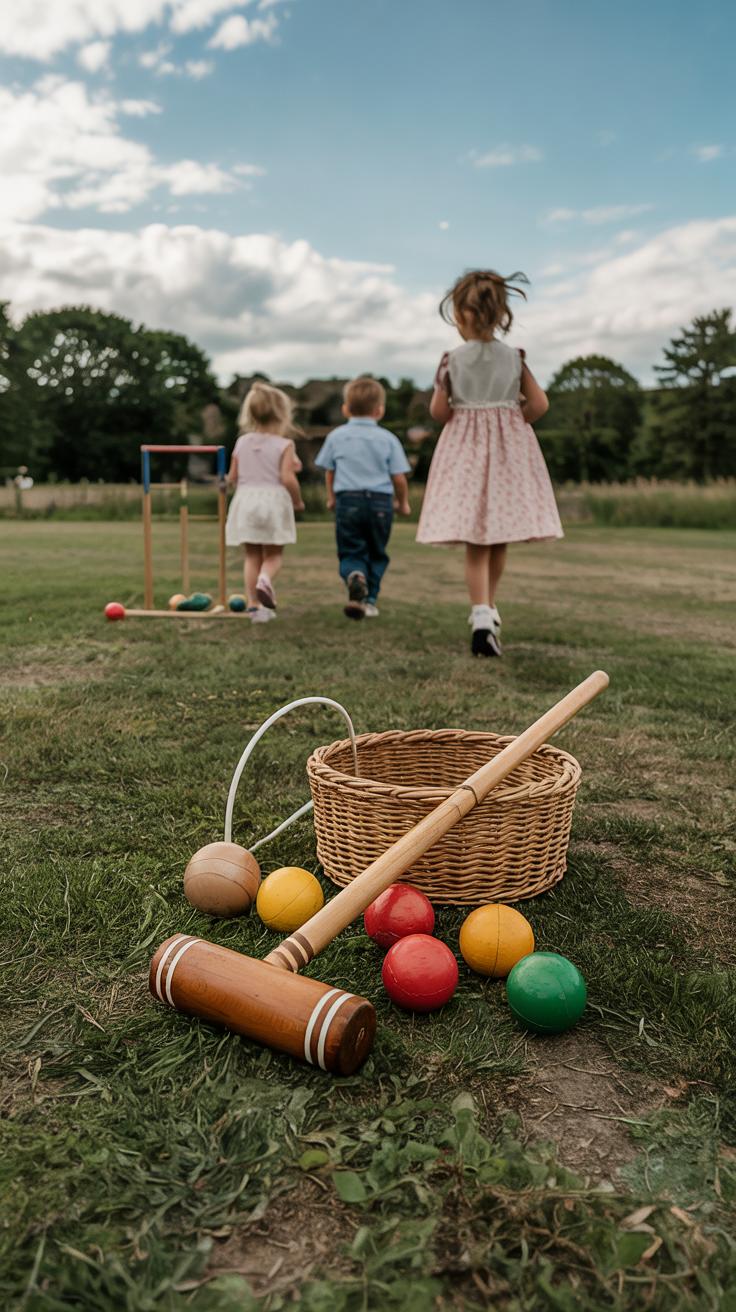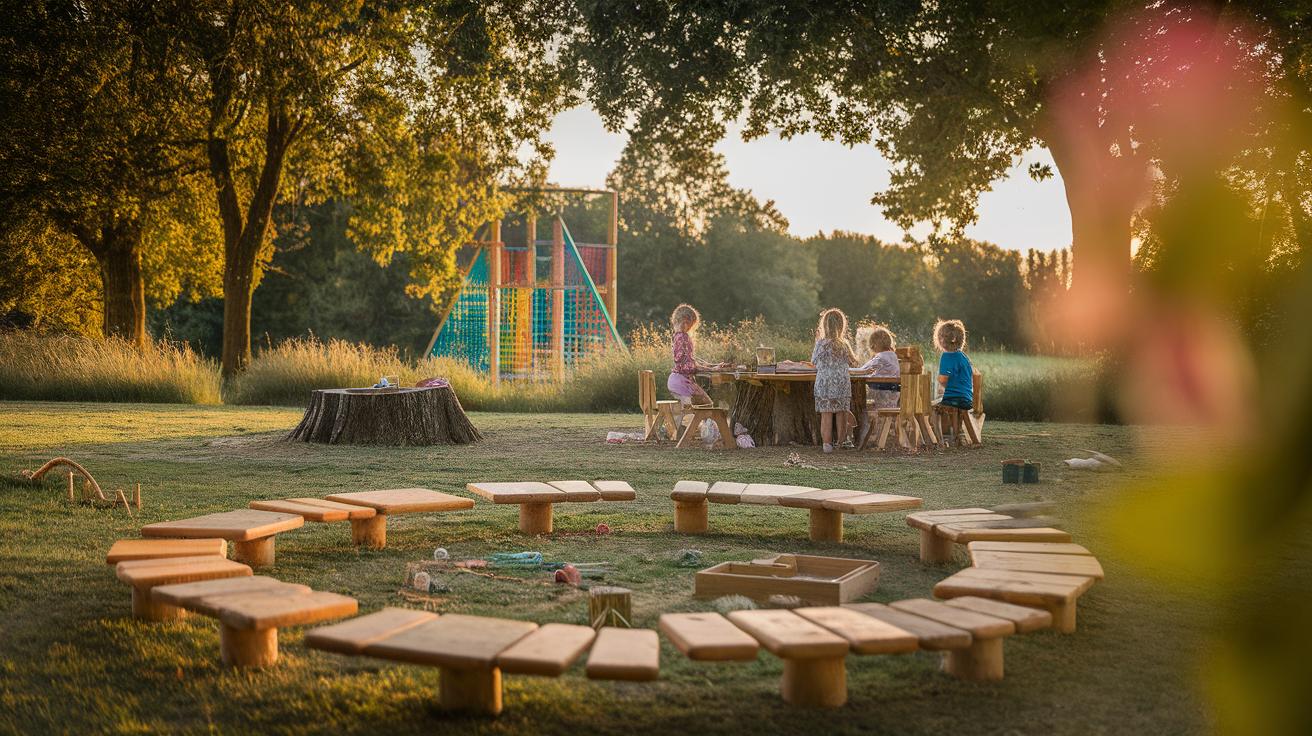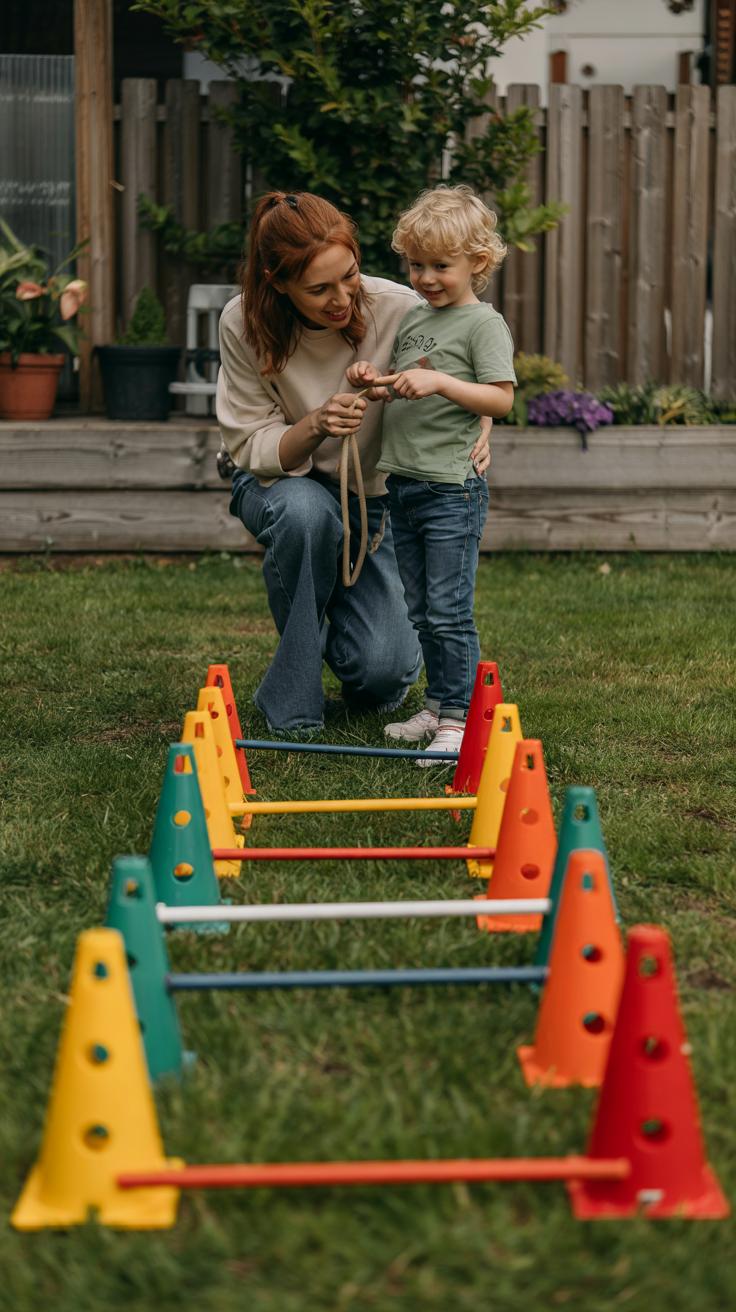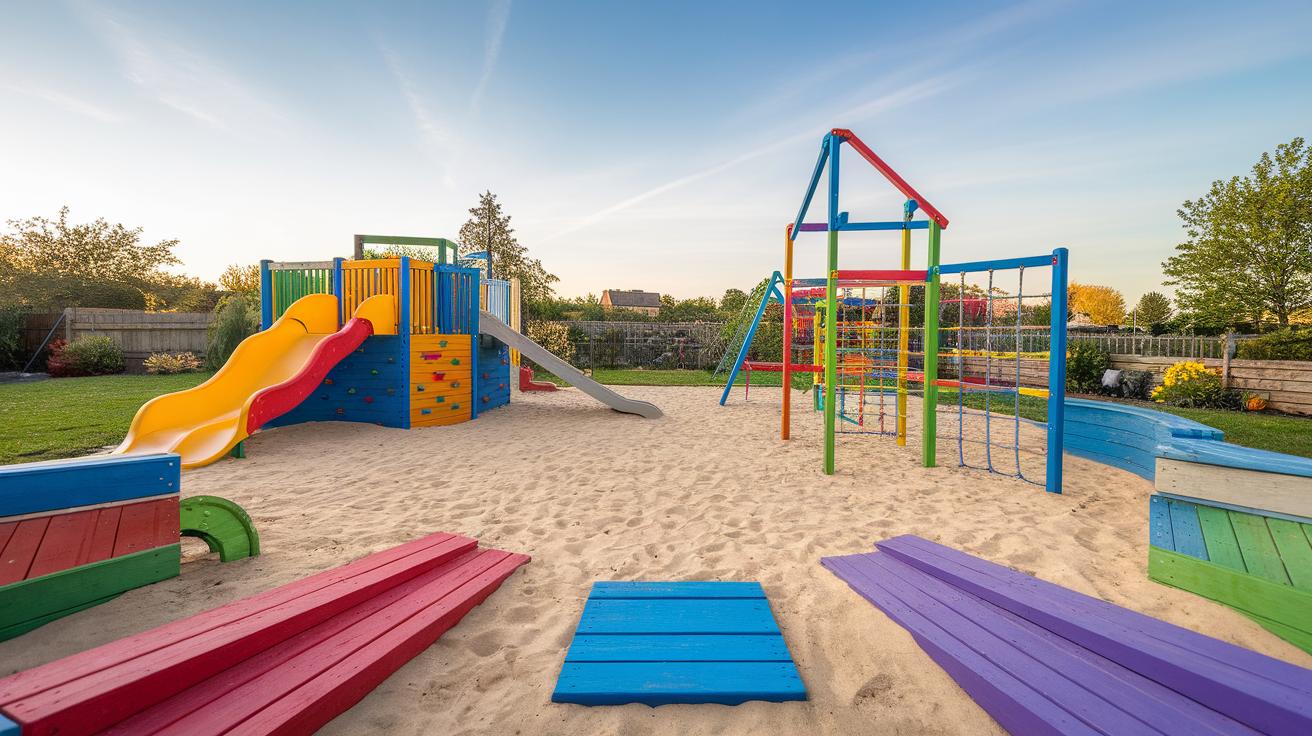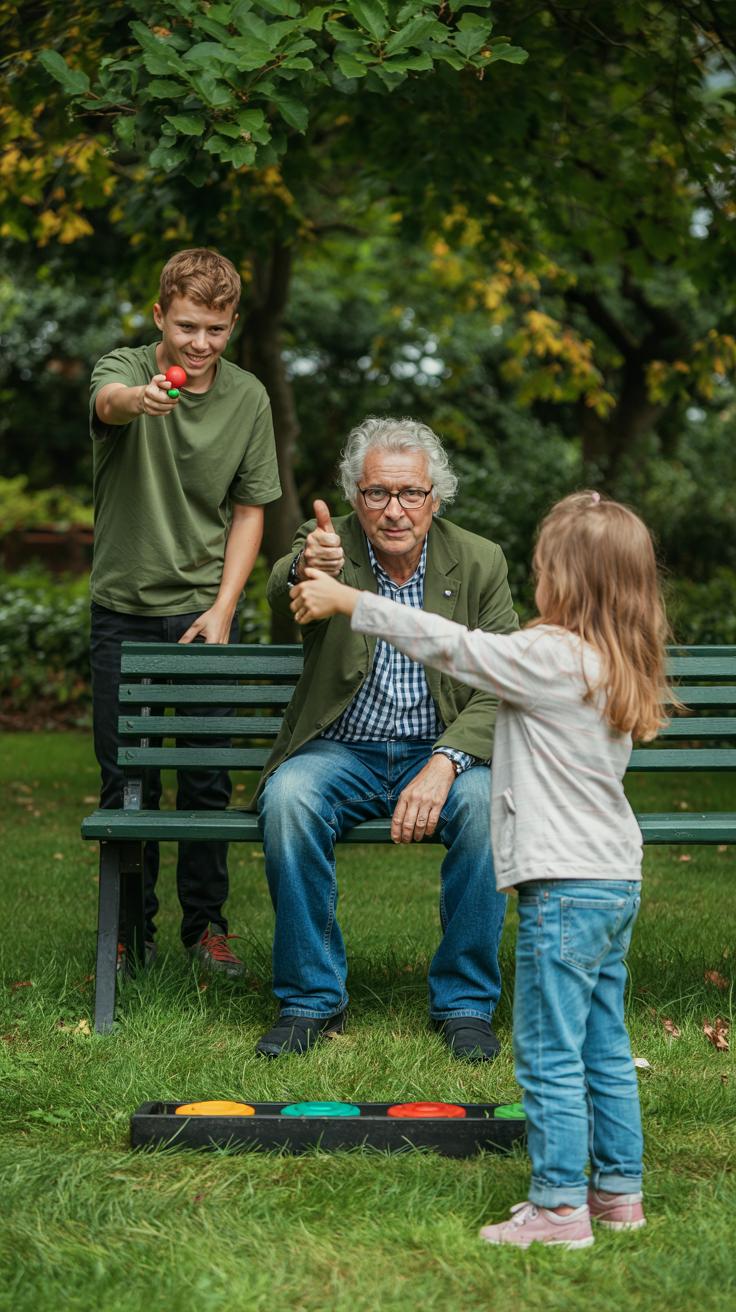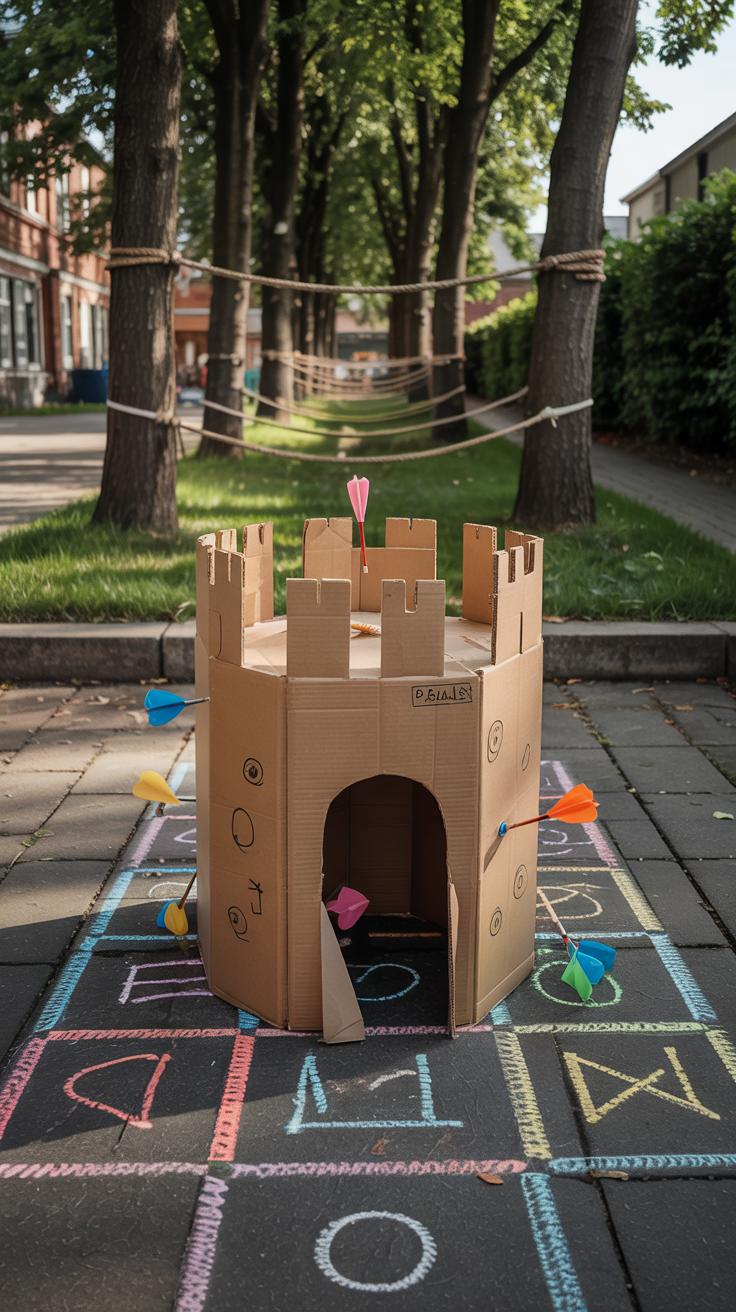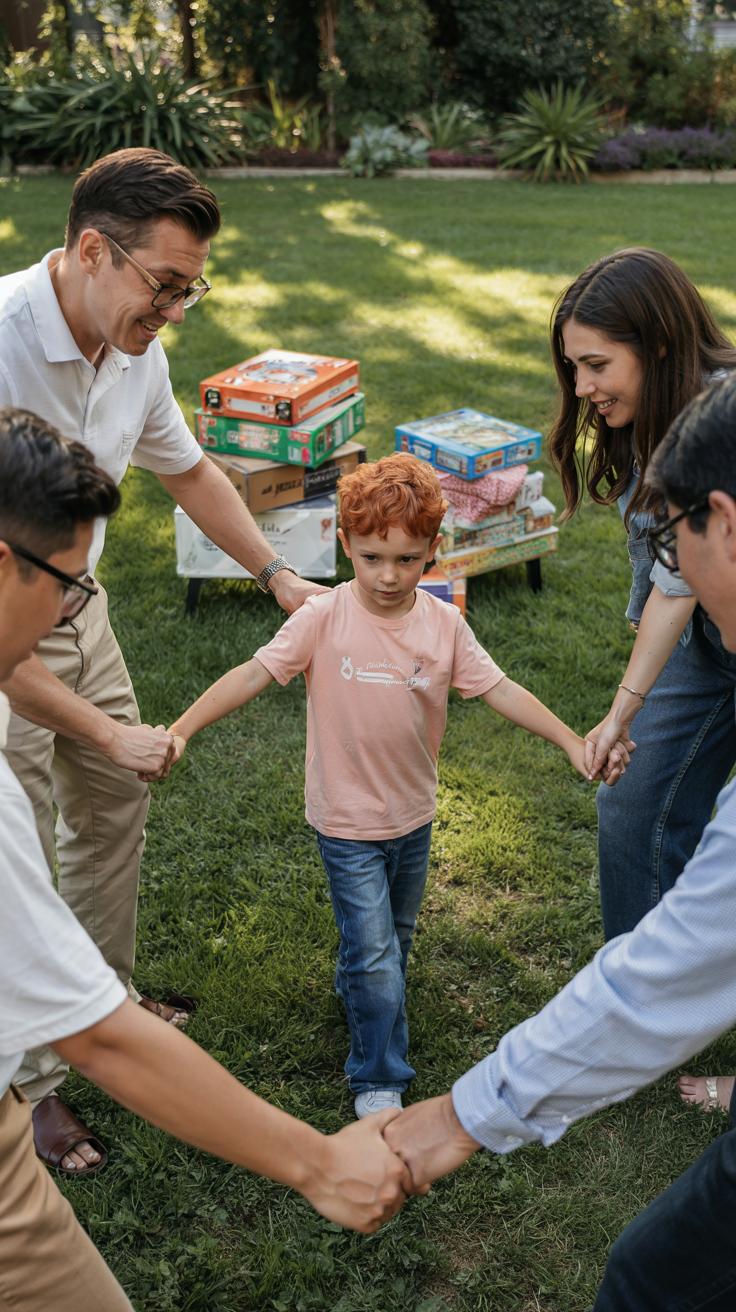Introduction
Backyard games offer a great way to bring family members closer while enjoying fresh air and physical activity. These games create shared moments that everyone in your family can enjoy regardless of age or skill. Playing games outside can improve communication and cooperation among family members by encouraging teamwork and friendly competition. It can also provide a break from screens and other distractions, allowing the family to focus on each other.
You might wonder which backyard games suit your family best. Choosing games that match your family’s interests and the space available will make the experience more enjoyable. This article will guide you through a variety of backyard games, their benefits, and tips for organizing game sessions that keep everyone engaged. Your family will find new ways to connect and create lasting memories by incorporating these fun activities into your routine.
Choosing The Right Backyard Games For Your Family
Picking backyard games means considering what your family enjoys. Think about the ages of your family members and what activities feel fun to them. Younger kids might prefer games that involve simple running or throwing, like a bean bag toss, while teens could choose something more active, such as frisbee or capture the flag. Adults may enjoy games that mix challenge and relaxation, like horseshoes or bocce ball.
Knowing each family member’s physical abilities can prevent frustration. For example, if someone has limited mobility, games that sit or involve gentle movement can still keep everyone involved. Your backyard’s size also plays a role. A small yard might only fit games like ring toss or ladder ball, while a larger space opens up options like soccer or tag.
Look at what equipment you already have. It saves time and money to use what’s in your storage before buying new gear. If you have a net, badminton or volleyball can become options. Do you enjoy competing as a team or simply having fun one-on-one? Understanding what motivates your family will help you choose games everyone looks forward to playing.
Consider Your Family’s Interests And Ages
Games should connect with what your family members enjoy and can handle. Kids under ten often prefer games that focus on basic skills such as tossing or balancing. For example, a simple ring toss suits young children and encourages hand-eye coordination.
Older children and adults may like games with a bit more strategy or action. Cornhole appeals to both teens and adults because it is easy to learn yet requires skill. If your family has a wide age range, look for games that scale well. Freeze tag works for all ages since everyone can play at their own pace.
Ask yourself: Will everyone feel included? If your family loves team games but you have toddlers, try games where younger players help toss or retrieve instead of running fast. Picking games that match interests ensures everyone stays engaged and happy.
Match Games To Your Available Space
Your backyard’s size is a key factor in what games will work best. For tight spaces like patios, aim for games that need little room, such as ring toss or bean bag toss. These games won’t require a lot of running or chasing.
Larger yards open up a wider range of games like kickball, soccer, or badminton. Make sure the ground is safe and even if a game involves running or jumping. Avoid games that might cause damage to plants or furniture.
Think about the layout, too. If your yard has several flower beds or garden furniture, choose games that fit clear, open areas to avoid accidents. Could you rearrange items temporarily to create more space? How much space does your family need to feel comfortable moving around? Answering these will help you select games that fit your yard and fun plans.
Classic Backyard Games To Start With
Starting with classic backyard games makes gathering around the yard simple and fun. These games need little preparation, so the whole family can jump in quickly. Games like horseshoes, three-legged races, or sack races require basic equipment, often already found at home.
Cornhole remains a popular choice because it suits all ages and offers light competition. These timeless games provide quick wins and chances to cheer each other on. Their simple rules mean kids and adults can play side by side, avoiding confusion or long explanations.
Why not bring out a jump rope or play hide and seek? These activities encourage movement without being too intense. Classic games invite everyone to join without worrying about skill level, making your backyard a place for connection and laughter before exploring more team challenges.
Simple Ball Games
Catching a ball is one of the easiest ways to get everyone moving together. Games like catch, kickball, or dodgeball push players to react fast and learn teamwork. For example, kickball turns your yard into a mini baseball field, which is easy to set up using bases like cones or bags.
Playing catch helps family members build confidence as they toss and catch at their own pace. Dodgeball encourages quick thinking and sharpens coordination. These games motivate kids and adults alike to stay active while working as a team to score or defend.
Do you notice how shared goals in ball games bring you closer? The laughter from close calls or big saves creates memories that go beyond just playing. These games make physical activity fun and invite everyone to support one another naturally.
Tag And Chase Games
Tag offers endless ways to get everyone running and laughing. Traditional tag is easy to play but can be spiced up with versions like freeze tag, where tagged players must stay still until freed by others. This encourages cooperation even in fast-paced play.
Other variants like flashlight tag or shadow tag blend chasing with strategy and teamwork. Because tag games allow players to switch roles constantly, they keep energy high and give everyone a chance to lead or follow.
Have you thought about how tag games build quick decision-making and social bonds? These activities encourage sharing space and respecting turns, which helps players of all ages interact smoothly. Tag connects family members through movement and shared excitement right in your backyard.
Incorporating TeamBased Games To Boost Cooperation
Backyard games that require teamwork promote cooperation and clear communication between family members. When you play team-based games, everyone learns to listen, share ideas, and support each other. These skills build stronger bonds beyond the game.
Involving your family in group games also creates opportunities to solve problems together. For example, assigning roles in a team task helps each member contribute their strengths. This encourages trust and respect among players.
Do you notice how working with others changes the way family members interact? Team games offer a natural way to practice patience and understanding in a fun setting. You can use simple games to help kids and adults communicate better while enjoying time outdoors.
Relay Races And Obstacles
Relay races teach your family how to depend on one another. Each person runs or completes a section before passing the baton to the next. This sequence encourages everyone to perform their best for the team’s success.
You can ramp up the fun by adding simple obstacles. For instance, create a course with cones to zigzag through, a small balance beam, or a sack hop section. These challenges require teamwork to cheer each other on and plan strategies.
Try timing the race and challenge teams to improve. How fast can your family complete the course? Relay races prompt quick thinking and motivate players to work as one unit.
Tug Of War And Group Challenges
Tug of war is a classic game that directly involves teamwork and strategic effort. Family members must pull together with coordinated force to win. This game sharpens communication as players decide when to pull harder or hold steady.
Group challenges like building a human pyramid or passing a ball without dropping it also promote cooperation. These activities ask family members to trust each other and combine their skills toward a shared goal.
Think about how strategies form naturally in these games. Who leads? Who motivates? Which moves make the team stronger? Such challenges build closer ties while encouraging problem-solving and mutual support.
Using Equipment Wisely To Enhance Game Experience
Using everyday backyard equipment can turn simple items into exciting games. You don’t need fancy gear to create fun and engaging activities for your family. Think about things already around your yard, like balls, ropes, cones, or buckets. These can become the foundation of many games that encourage movement and teamwork.
Consider setting up obstacle courses with garden tools or using sticks as goal markers for throwing games. Do you have old pool noodles? They make perfect batons or targets. By reimagining common items, you create fresh challenges without extra cost. This encourages creativity and brings family members together to invent new rules and variations.
Try mixing equipment to design games that fit your family’s interests. Using your resources well ensures everyone stays involved and the games stay interesting session after session. What ordinary object in your backyard can become part of your next family game night?
Balls, Beanbags, And Other Basic Tools
Balls work in many backyard games like catch, dodgeball, or kickball. You can find inexpensive balls at local stores or use repurposed ones from around the house. Beanbags fit well in games like toss or target throwing and can be made at home by filling small fabric bags with beans or rice.
Other tools like hula hoops, jump ropes, and frisbees invite diverse game options. If you don’t have these, consider crafting some using materials like tape, string, or old plastic lids. This adds a personal touch and shows your kids how items can take on new roles.
Have you tried starting with these basics? They offer endless ways to keep your family moving and having fun without overwhelming preparation.
Safety And Maintenance Of Equipment
Keep your game equipment in good shape to avoid injuries and extend usability. Check balls and beanbags regularly for tears or leaks. Replace or repair damaged items right away. Store equipment in a dry place to prevent mold, especially fabric items like beanbags.
Inspect ropes and hula hoops for cracks or fraying before each use. Clean off dirt or grass that might make surfaces slippery. Remind family members to handle gear gently and respect shared items to avoid accidents.
Would your family benefit from a quick cleanup routine before and after play? This small habit protects your investment and keeps every game session safe and enjoyable for everyone involved.
Adapting Games For Different Ages And Skill Levels
Every family member brings different abilities and energy to backyard games. You want everyone to join in and enjoy the fun without feeling left out or bored. Adjusting the rules based on who is playing helps create a fair and exciting atmosphere for all ages.
Think about varying distances, time limits, or the complexity of tasks to fit each player’s skills. Younger kids might play with softer balls or take fewer turns, while adults can handle tougher challenges. You might let young children team up with adults to balance skill levels and encourage cooperation.
Have you noticed how some family members shine in certain games but not in others? Rotate roles or tweak scoring so that everyone gets a chance to feel successful. Making space for personal growth while keeping the game lively can turn a simple backyard activity into a shared family highlight.
Simplifying Rules For Younger Players
Simple rules keep kids interested and make games easy to follow. You might reduce the number of steps or remove complex penalties so children focus on playing, not stressing over rules. For example, in a game of tag, allow kids to tag with a light touch instead of a chase to avoid frustration.
Use visual guides or signals to help kids understand what to do next. When playing balloon volleyball, count longer bounce times to give younger players extra chances. Older players can keep the original rules to stay engaged but help younger ones by showing moves or encouraging teamwork.
What small rule change could your younger family members benefit from? Adjusting instructions can open doors to more laughs and learning without slowing down the whole group.
Increasing Challenges For Older Family Members
Older players need fresh challenges to stay motivated. Try adding extra tasks, like scoring bonus points for tricky shots or setting time limits to boost speed and pressure. You could introduce strategic elements such as changing team members mid-game or creating new rules on the fly.
In games like cornhole, adults might stand farther back or toss with the non-dominant hand to raise difficulty. Physical challenges, like squats or jumps before a turn, can also increase engagement without excluding others.
Consider how you might turn a familiar game into a new test of skill for grown-ups. How can added challenges encourage friendly competition while keeping the family spirit alive?
Organizing Regular Game Sessions To Build Routine
Scheduling backyard game time creates a rhythm that your family can look forward to each week. When you pick a consistent day and time, it turns play into a shared habit. This routine offers everyone a break from daily distractions to focus on each other.
You can make game nights as important as family dinners or chores. For example, choosing Sunday afternoons for games sets up a relaxing close to the weekend. Kids and adults start to expect that time together, which builds connection and trust.
Would your family enjoy making a calendar or a fun reminder for these sessions? Involving everyone in the schedule makes it feel special and gives each person ownership of family time. Over time, these sessions become a cornerstone for your family’s happiness and bonding.
Choosing The Best Time And Day
Consider the weather before picking your game day. Early evenings or late afternoons often work well since temperatures are cooler and the sun isn’t too bright. Avoid the hottest parts of the day, especially in summer.
Look at your family’s school, work, and other commitments. Find a slot with the fewest conflicts. Weekends usually offer more flexibility, but some families may prefer weekday evenings. You might try different days to see when everyone feels most available.
Would quieter days help younger kids stay focused? Would adults prefer weekends to fully relax? Asking these questions helps choose a time that fits your family’s unique rhythm and makes game sessions more enjoyable.
Keeping Engagement High Over Time
To keep everyone interested, rotate through different games regularly. Switching from tag to cornhole to relay races keeps excitement fresh. Introducing new games once in a while offers a chance to learn new skills together.
You could also let each family member pick the game for the week. This gives everyone a voice and chances to share their favorites. Consider themed game nights or small prizes to raise energy without stressing competition.
How can you balance familiar favorites with new challenges? Think about adding simple variations or team twists to old games. These ideas help maintain enthusiasm and build lasting memories.
Encouraging Friendly Competition And Positive Attitudes
Keeping a fun atmosphere during backyard games means making competition a way to motivate, not to cause fights. You can encourage everyone to cheer for each other’s progress rather than just focusing on who wins. For example, remind kids to say “good game” or “nice try” no matter the score. When you see frustration building, take a short break or switch to a less competitive activity. Ask yourself, how can you turn a close game into a chance to practice patience and teamwork? Using simple praise like “You’re improving!” helps your family enjoy games as a way to connect instead of just compete. Positive attitudes come when everyone knows that the goal is fun together, not just beating others.
Setting Clear Rules And Fair Play Expectations
You can prevent most arguments by explaining the rules before the game starts. When everyone understands what’s allowed and what’s not, disputes rarely arise. Use straightforward language and check if each player agrees. For example, with games like frisbee toss or sack race, clarify boundaries and turns clearly. You might write the rules on a small board or say them out loud. Ask players questions like, “Does everyone know when the round ends?” This approach helps make sure all family members feel treated fairly. Clear rules also encourage respect because everyone knows what to expect, which lowers the chance of misunderstandings during play.
Recognizing Effort Over Winning
Focus on praising how hard everyone tries during the games instead of only celebrating who wins. When you highlight effort and working together, family bonds grow stronger no matter the score. Try saying things like, “I liked how you helped clean up after the game” or “You kept trying even when it was tough.” This shifts attention to cooperation and support, making games less about rivalry. Have you noticed how everyone seems happier when effort gets recognized? This encourages kids and adults to enjoy playing without fear of losing. Effort is a shared success that builds trust and strengthens family connections over time.
Creative Backyard Game Ideas For Family Bonding
Trying new games can refresh family time and invite everyone to join in with curiosity and laughter. Think beyond the usual tag or catch. You might organize a backyard scavenger hunt where each clue leads to a hidden family treasure or create a giant tic-tac-toe board using colored stones or painted cardboard. These games encourage problem-solving and cooperation.
Consider playing “Reverse Hide and Seek,” where one person hides, and everyone else searches. It changes the usual roles and keeps everyone engaged. Another idea is obstacle courses built from household items, challenging family members to race while navigating creative physical tasks. These inventive games offer fresh ways to connect, learn about one another’s strengths, and build memories that go beyond competition.
DIY Game Projects
Making your own backyard games saves money and adds personal meaning. Use empty tin cans to create a ball toss game by stacking them in a pyramid on a wooden board. Collect pinecones or small stones as game pieces for homemade bocce ball or bean bag toss. Old T-shirts can transform into reusable rings for ring toss games.
Invite your family to help build these games. This shared effort builds excitement before play even begins. While assembling, you’ll talk, laugh, and plan strategies, strengthening bonds. Simple instructions with recyclable materials encourage creativity and responsibility. What could your family create together today?
Themed Game Days
Organizing themed game days breaks the routine and sparks enthusiasm. Pick a theme like “Pirate Adventure” where players dress up and solve clues leading to “hidden treasure.” Use props from around the house to enhance the experience. Themes create stories and roles that deepen engagement.
Try a “Retro Olympics” day featuring classic games like sack races, three-legged races, and hula hoop contests. Award silly medals or titles to celebrate everyone’s effort. Asking your family each week to choose a new theme can keep anticipation high. What theme would excite your family the most and inspire teamwork?
Benefits Of Playing Outdoor Games As A Family
Playing backyard games offers families more than just fun. Physically, it gets everyone moving, which improves strength, flexibility, and endurance. Running, jumping, or throwing during games keeps hearts healthy and bodies strong. This active time outdoors contrasts screen time and encourages healthy habits early.
Mental benefits show up too. Games challenge the mind with rules, strategy, and quick decisions. This sharpens problem-solving skills and helps family members stay alert. Can you remember a recent game where you had to think fast or cooperate to win? Those moments strengthen focus and mental flexibility.
Socially, these games create spaces for families to connect. Laughing together breaks down barriers and encourages sharing. Emotional bonds grow as family members celebrate wins or console losses. Backyard games help build trust and respect through play, which might be hard to achieve in daily routines.
Health And Fitness Improvements
Regular backyard play keeps your family active in a way that feels natural and fun. Instead of forcing workouts, games like tag, relay races, or frisbee turn exercise into a joyful experience. The result is better cardiovascular health, stronger muscles, and improved coordination for everyone.
Kids who move regularly develop better motor skills and sleep patterns, while adults reduce stress and maintain energy. How often do you find your family outdoors moving together instead of sitting apart? Making time for these activities builds healthier habits that last.
Building Communication Skills And Emotional Bonds
Backyard games demand clear communication. Explaining rules and strategies encourages everyone to listen carefully and express thoughts clearly. This practice improves everyday conversations and helps family members understand each other’s perspectives better.
Playing together creates a safe space to show emotions honestly. Cheering, gentle teasing, or encouraging words teach empathy and patience. When your family shares these moments, trust grows and conflicts reduce. What kind of conversations have started after a game ended? Those talks often bring families closer.
Making Backyard Games A Lasting Family Tradition
Creating a family tradition with backyard games strengthens your bonds over time. Set aside a specific day each week or month for game time. This regular schedule gives everyone something to look forward to and helps build lasting memories.
Rotate who picks the game to keep everyone involved and excited. Different games appeal to different ages and interests, so mixing it up keeps the fun fresh. Record scores or create family leaderboards to add a sense of friendly competition that motivates players.
You might also develop inside jokes or special celebrations linked to certain games. These small rituals make your game nights unique and meaningful. What traditions can your family start today that would be fun to pass on years from now?
Creating Special Events Around Games
Tying backyard game tournaments to holidays or seasons adds extra excitement. Plan a Fourth of July cornhole contest or a Halloween scavenger hunt to match the mood of the celebration. These themed events turn ordinary gatherings into memorable occasions.
Offer small prizes or awards for winners. Make them simple, like homemade certificates or extra dessert, so everyone enjoys competing. Invite family members to dress according to the theme to boost involvement.
Consider setting up a seasonal leaderboard that tracks performance over several events. This keeps motivation high and makes returning players eager to improve. What seasonal event could you build a game tradition around this year?
Involving Extended Family And Neighbors
Backyard games become livelier when you include extended family and neighbors. Invite nearby friends and relatives to join your game days. This opens chances to meet new people and strengthen your community.
Organize rotating game nights where different households host. This spreads the workload and offers variety in settings. Larger groups bring more energy and opportunities for teamwork or new game ideas.
Encourage attendees to bring their favorite games. You might discover new favorites while making connections. How can you reach out to neighbors or extended family to invite them next game night?
Conclusions
Backyard games serve as a simple and effective tool to enhance family interaction, promote physical health, and encourage teamwork. They require minimal equipment and can accommodate a range of ages and physical abilities. By inviting every family member to play, you foster an inclusive atmosphere that values connection and shared enjoyment. These moments can help build trust and strengthen family relationships.
You can start small with familiar games and explore new ones as your family’s interest grows. The key is regular participation and a spirit of fun rather than competition. Adapt games to fit your family’s needs and create your own traditions. Ultimately, the joy found in backyard games will resonate beyond the yard, enriching your family life in meaningful ways.

